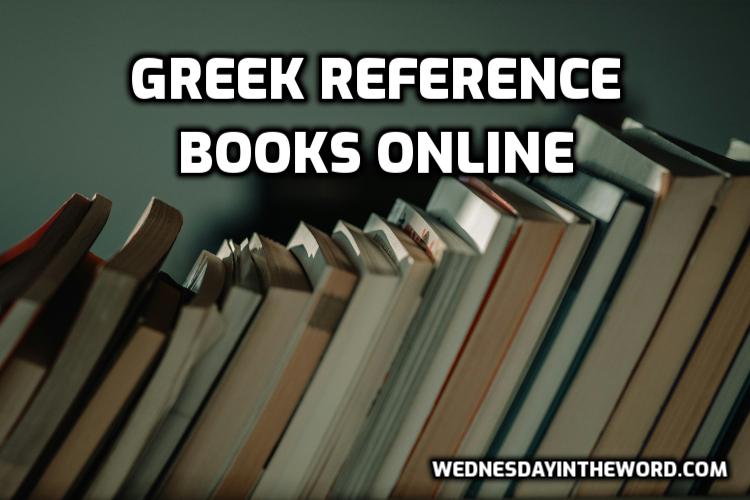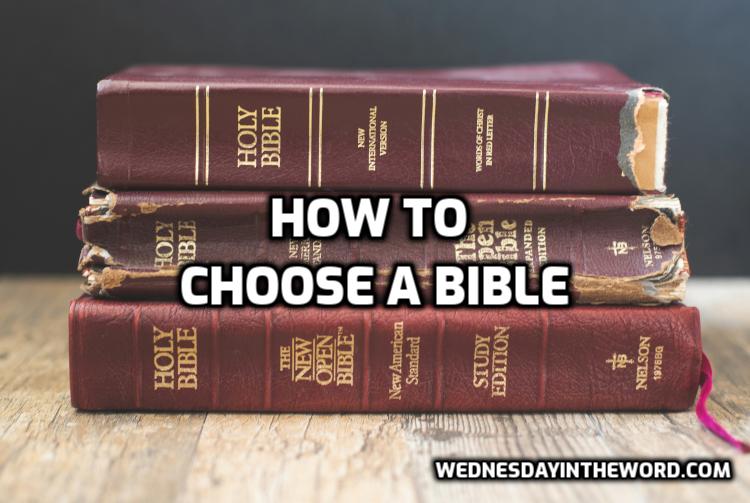Bible Study 101: Tools
Bible Study 101: Tools – The basic tools needed for Bible study collected and explained on Wednesday in the Word.
Bible Study 101: Tools

Greek Reference Books You Can Access Online for Free
Greek Reference Books Online: Where to find free online biblical Greek dictionaries, lexicons and concordances from WednesdayintheWord.com
Online Bible Dictionaries & Lexicons You Can Access Free
After gathering an idea of the word’s meaning from your own study, it’s a good time to check the conclusions of other scholars and reference works. Here are some free online places to look.

50 Modern Bible Commentaries You Can Read Online
You’re probably aware that many classic commentaries are free online, but did you know many modern commentaries (written after 1970) are also online?

Should I learn Biblical Greek & Hebrew?
After a few years of Bible study, students often begin asking, “Should I learn biblical Greek and Hebrew?” While the tools for English readers continue to improve and less people are learning the original languages, knowing the original languages can be helpful. You can learn enough to widen the tools available to you and/or learn to read Scripture in the original language.

20 Online Resources for Deeper Bible Study
Online resources to help you study: maps, charts, outlines, key words, etc. On this one page, you’ll find links to websites and Bible study software.

4 Classic Commentaries You Can Read Online for Free
Many of the classic commentaries are free online, but how do you know which one(s) to use? And where do you find them? Here’s a quick list and explanation

6 Online Bible Encyclopedias Every Student of Scripture Should Bookmark
Multi-volume encyclopedias used to be too expensive for home use and were confined to those with access to a large library system. However, they are becoming more widely available on computer software and online.

When to Use Commentaries (and When Not To)
Commentaries can kick-start your thinking when you hit a dead end but should not be a substitute for your own work. Here’s my two rules of thumb.

Why Every Bible Student Should Use an Encyclopedia
Multi-volume encyclopedias are good sources for historical and biblical themes. But background information does not impose meaning.
What’s the Difference Between a Bible Lexicon and Dictionary?
Lexicons & dictionaries can reveal what might be “lost in translation” but they also tempt us to fall into the trap of “I learned a fact about a word and I must use it.”

Unlock Scripture with a Concordance: The Bible Study Tool You Need
A concordance is an organized list of all the biblical texts which contain a given word. Concordances allow you to broaden your understanding of how a word is used and its range of meanings.

Maps for Bible Study: Visual Tools That Illuminate Scripture
Bible Maps. Access to geographical information about the ancient near east will improve your Bible Study. Here’s where to find good maps.

How to Choose a Bible
Not sure which Bible to read? Learn the difference between word-for-word, thought-for-thought, and paraphrase translations—and which one is best for study and devotion.
Top Banner Photo by Tamara Bellis on Unsplash
